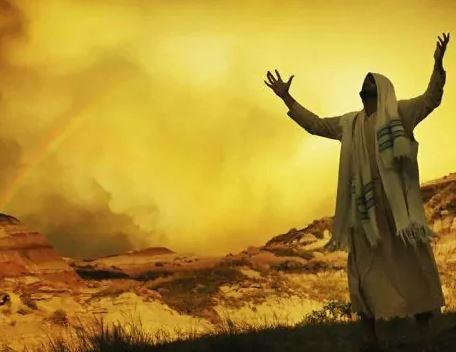Messiah

The term "Messiah" (or Mesías in Spanish) carries deep spiritual and religious significance across various cultures and belief systems. It primarily refers to an anointed savior or deliverer, but the interpretation and expectations of the Messiah vary significantly between religious traditions. Let's explore what the concept of the Messiah means in the Judeo-Christian context and touch on how it appears in other traditions as well.
The Messiah in Judaism
In Judaism, the Messiah is a future Jewish king from the Davidic line, anointed by God to rule the Jewish people during the Messianic Age. The Messiah is seen as a figure who will bring about a period of peace, justice, and restoration for the Jewish people, and for the world at large. The concept of the Messiah is rooted in the Hebrew Scriptures, especially the prophecies in the Old Testament (Tanakh).
Key Aspects of the Jewish Messiah:
-
The Anointed One: The term "Messiah" comes from the Hebrew word "Moshiach", which means "anointed one." It refers to a leader who will be chosen by God to restore Israel.
-
Restoration of Israel: The Jewish Messiah is expected to bring the scattered tribes of Israel back to their homeland, rebuilding the Holy Temple in Jerusalem and ushering in an era of peace and righteousness.
-
Spiritual Leadership: The Messiah will be a wise and just leader, restoring the true spiritual teachings of the Torah and guiding the world toward the worship of the one God.
-
Peace and Justice: The Messiah is expected to end war, establish justice, and bring harmony to the world, where the lion will lie down with the lamb (a symbolic prophecy of peace).
-
The End of Suffering: The Messiah will bring about the end of suffering, illness, and death, creating a utopian society.
Jewish Views of the Messiah:
-
In traditional Judaism, the Messiah has not yet come. This has led to a diversity of beliefs, but the expectation of the Messiah's arrival remains a central part of Jewish eschatology.
-
Reform Judaism may interpret the idea of the Messiah more metaphorically, viewing it as a future time of peace and justice rather than a literal person.
The Messiah in Christianity
In Christianity, the concept of the Messiah is closely tied to Jesus Christ. Christians believe that Jesus is the promised Messiah (or Christ, which means "the Anointed One" in Greek), and that he fulfilled the prophecies of the Hebrew Bible.
Key Aspects of the Christian Messiah:
-
Jesus as the Messiah: Christians believe that Jesus of Nazareth is the Messiah who was foretold in the Old Testament. However, unlike traditional Jewish expectations of a political or military leader, Christians understand Jesus as a spiritual savior who offers salvation through his life, death, and resurrection.
-
Spiritual Redemption: Jesus' mission was not just to restore Israel politically, but to bring spiritual salvation to all people. By dying on the cross, Christians believe Jesus atoned for the sins of humanity, offering the hope of eternal life with God.
-
The Second Coming: While Christians believe Jesus is the Messiah, they also anticipate his Second Coming, where he will return to establish God's Kingdom, judge the living and the dead, and complete the work of redemption.
-
Universal Savior: For Christians, the Messiah's role is universal—to bring salvation not only to Jews but to all people. Jesus' message is one of love, forgiveness, and reconciliation with God.
Christian Views of the Messiah:
-
Christians see Jesus as having fulfilled many of the Messianic prophecies found in the Hebrew Scriptures, such as being born in Bethlehem, performing miracles, and being a descendant of King David.
-
Judaism rejects the idea that Jesus was the Messiah, as he did not fulfill the expectations of a worldly king who would restore Israel to its former glory and establish peace on Earth in a political sense.
The Messiah in Islam
In Islam, Jesus (known as Isa in Arabic) is also recognized as the Messiah, but with a somewhat different interpretation compared to Christianity.
Key Aspects of the Islamic Messiah:
-
Isa (Jesus) as the Messiah: Muslims believe that Jesus is a prophet and the Messiah but that he was neither divine nor the Son of God. In Islam, Jesus is seen as a sign of God's presence on Earth.
-
Second Coming: Muslims believe that Jesus will return in the future, similar to the Christian view of the Second Coming. In Islamic eschatology, Jesus will return to defeat the false messiah (Al-Dajjal), a figure of deception and evil, and establish a period of peace and justice.
-
No Atoning Death: Unlike Christianity, Islam teaches that Jesus was not crucified. Instead, he was taken up to heaven by God. Muslims do not believe that Jesus died for the sins of humanity but instead view him as a prophet who delivered God's message.
-
Universal Guidance: Jesus, like other prophets in Islam, is considered a guide to righteousness and obedience to God. His message aligns with the teachings of Islam, which emphasizes monotheism and the worship of the one true God (Allah).
Messianic Figures in Other Spiritual Traditions
While the concept of the Messiah is most prominent in Judaism, Christianity, and Islam, messianic figures or saviors appear in several other traditions as well:
-
Zoroastrianism: In Zoroastrianism, the Saoshyant is a messianic figure who is prophesied to bring about the final defeat of evil, resurrect the dead, and establish a reign of justice and truth.
-
Buddhism: While Buddhism doesn't have a "Messiah" in the same sense, there is a future Buddha called Metteya (Metteya) who will appear to teach the true path after the teachings of the current Buddha, Sakyamuni, have been forgotten.
-
Hinduism: In Hinduism, the Avatar is a divine being who incarnates to restore cosmic order. The most famous avatars are Vishnu's incarnations, particularly Krishna and Rama. There is also an expectation of a future avatar, Kalki, who will come in the future to destroy evil and restore righteousness.
The Messiah as a Universal Symbol
In many religious and spiritual traditions, the Messiah is ultimately a symbol of hope, redemption, and the eventual triumph of good over evil. Whether as a literal figure or a symbolic one, the Messiah represents the fulfillment of divine promises, the arrival of a better world, and the restoration of peace and justice.
Summary of the Messiah Concept Across Traditions
-
Judaism: The Messiah is a future leader from the lineage of David who will restore Israel, bring peace, and establish divine justice.
-
Christianity: Jesus is the Messiah who brings spiritual salvation through his life, death, and resurrection, with an expectation of his Second Coming.
-
Islam: Jesus is the Messiah who will return to defeat evil and establish peace, but is viewed as a prophet, not divine.
-
Other Traditions: Various cultures and religions also have messianic figures or saviors who will bring about a future age of righteousness and justice.
1. The Messiah in Judaism:
-
Explore the Jewish understanding of the Messiah, focusing on the Davidic lineage, prophecies from the Hebrew Bible, and the Messianic Age.
2. The Messiah in Christianity:
-
Delve into how Jesus Christ is viewed as the Messiah in Christian theology, including atonement, the Second Coming, and the idea of universal salvation.
3. The Messiah in Islam:
-
Learn more about Isa (Jesus) as the Messiah in Islam, particularly his role in Islamic eschatology, his return in the future, and how Islam views the Messianic concept.
4. Messianic Figures in Other Traditions:
-
Discover the Messianic figures in other spiritual traditions, like Zoroastrianism, Buddhism, and Hinduism, and how each tradition views the coming of a savior or divine figure.
-

